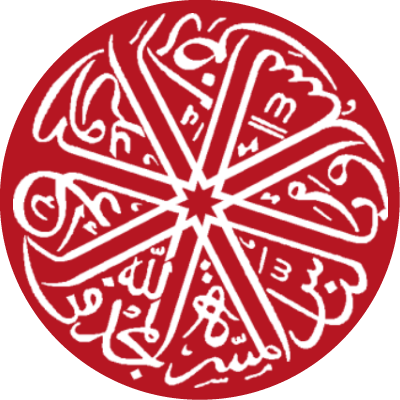Works by Günther, Sebastian, 1961‒ as author 21
Advice for teachers
Editions 1
Relationships with other works 2
Be masters in that you teach and continue to learn
Editions 1
Hostile Brothers in Transformation : an archetypical Conflict figuring in classical and modern Arabic Literature
Editions 1
Al-Nawfalī's lost History : a shīʿī source used by al-Ṭabarī and Abū l-Faraj
Editions 1
"... nor have I learned it from any book of theirs"
Editions 1
O people of the Scripture ! Come to a word common to you and us (Q. 3:64) : the ten commandments and the Qurʾan
Editions 1
Praise to the book! Al-Jāḥiẓ and Ibn Qutayba on the excellence of the written word in Medieval islam
Editions 1
Quellenuntersuchungen zu den "Maqātil aṭ-ṭālibiyyīn" des Abū ʾl-Farağ al-Iṣfahānī
Editions 1
Relationships with other works 1
[Review of ] : Daniel A. Madigan : The Qur'an's Self-Image. Writing and Autority in Islam's Scripture
Editions 1
Relationships with other works 1
[Review of Navid Kermani] : Gott ist schön. Das ästhetische Erleben des Koran
Editions 1
Der šāfiʿitische Traditionalist Abū Sulaimān al-Ḫaṭṭābī und die Situation der religiösen Wissenschaften im 10. Jahrhundert
Editions 1
Textual endings as persuasive educational beginnings
The Brethren of Purity, a circle of high-ranking 9th and 10th-century scholars from the Iraqi port city of Basra, is renowned for having produced an immense literary corpus of encyclopedic erudition: the Rasāʾīl Ikhwān al-Ṣafāʾ. The wide range of religious and non-religious subjects of these Epistles, the questions as to the identity of their authors and intended addressees, as well as the specifics of the language and literary devices characterizing these treatises, have fascinated readers and researchers from medieval times to the present. Surprisingly, however, the Epistles have not yet been adequately studied from the perspective of their role in Islamic educational thought. This article takes a step in that direction by looking into the pedagogical dimension of remarks the Brethren offer to conclude some of their treatises. It focuses primarily on the endings of their perhaps most programmatic texts, i.e., Epistle 7 (“On the Scientific Arts”), Epistle 8 (“On the Practical Crafts”) and Epistle 22 (“Animals versus Man”). The endings of a few individual chapters in these three works are also examined. Guiding this approach are questions such as: What differentiates each ending from the body of its respective text? What functions do they have beyond merely summarizing content? And are there indications that preceding literary and scientific traditions, Islamic or non-Islamic, may have influenced the form, language and style of these finales? Thus we hope to advance some insights into the Epistles’ role in the general development of classical Arabic writing, and their educational significance more specifically.
Editions 1
Relationships with other works 1
"Wehe dieser südingen Gemeinde, die nicht weiß, ob ihr Gutes oder Böses widerfährt"
Editions 1
